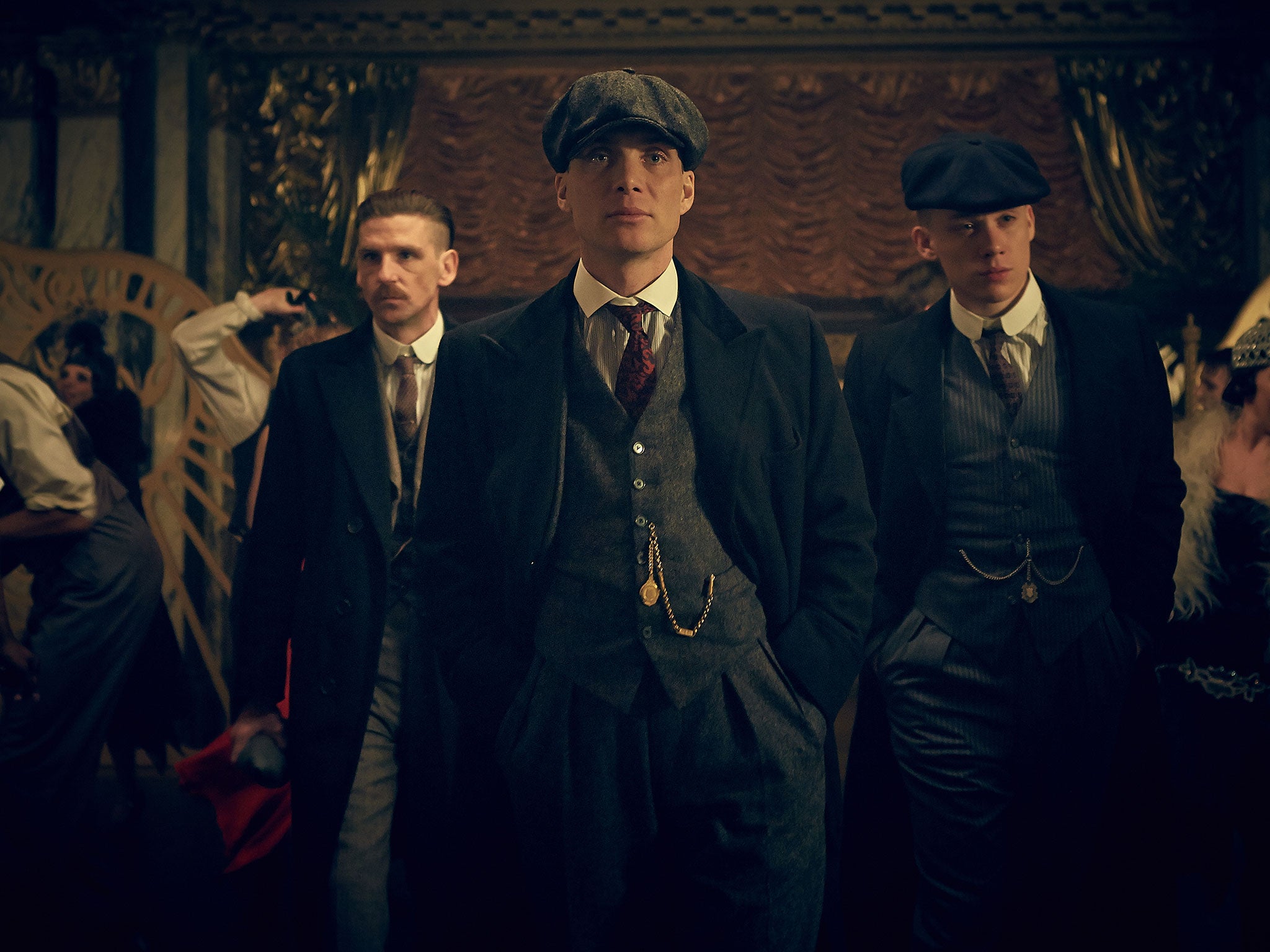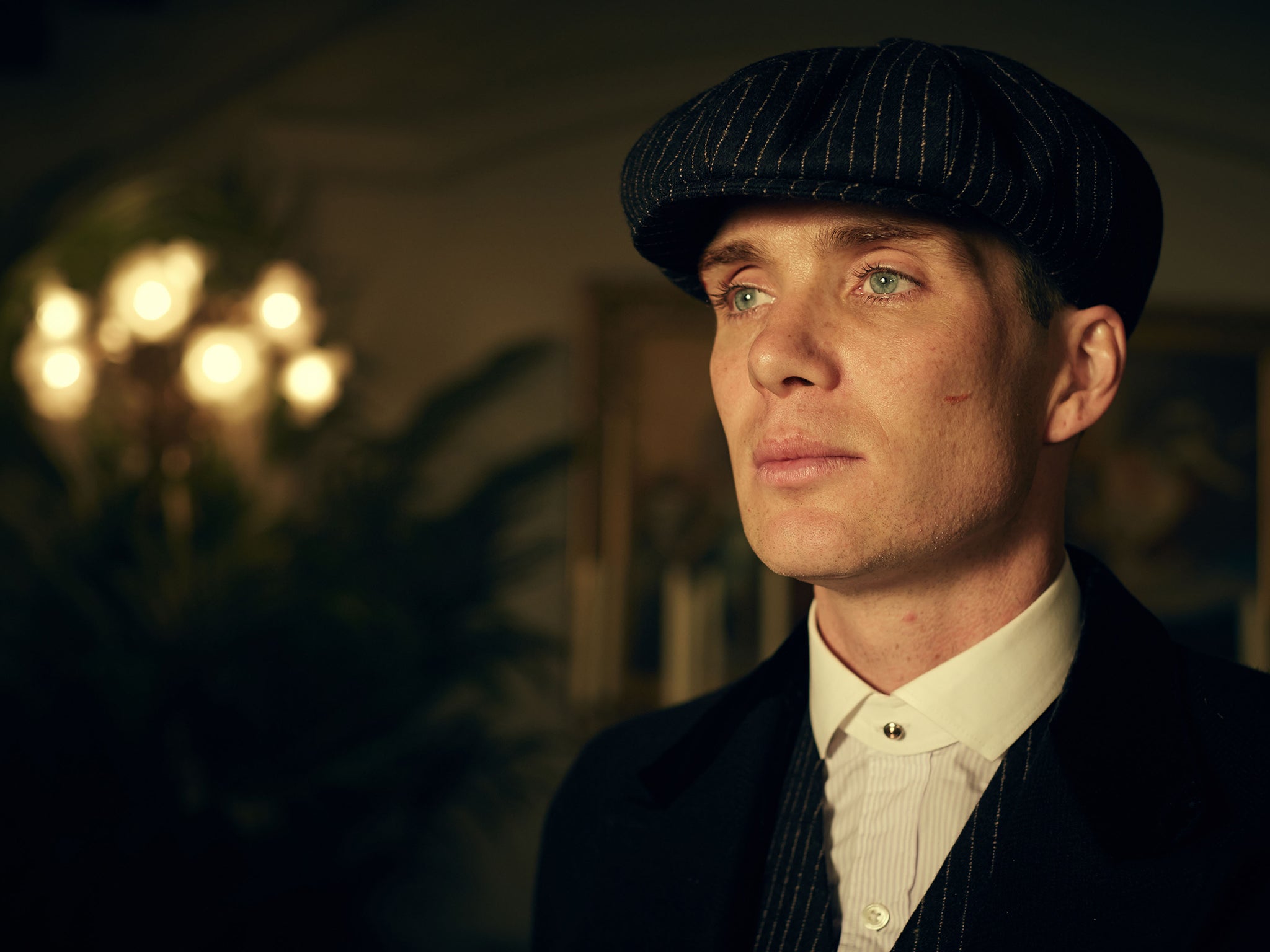Grace Dent on TV: Peaky Blinders needs a third series
In Peaky Blinders, Tom Hardy truly found a home, slugging it out scene for scene with three of Britain’s other finest screen presences

Your support helps us to tell the story
From reproductive rights to climate change to Big Tech, The Independent is on the ground when the story is developing. Whether it's investigating the financials of Elon Musk's pro-Trump PAC or producing our latest documentary, 'The A Word', which shines a light on the American women fighting for reproductive rights, we know how important it is to parse out the facts from the messaging.
At such a critical moment in US history, we need reporters on the ground. Your donation allows us to keep sending journalists to speak to both sides of the story.
The Independent is trusted by Americans across the entire political spectrum. And unlike many other quality news outlets, we choose not to lock Americans out of our reporting and analysis with paywalls. We believe quality journalism should be available to everyone, paid for by those who can afford it.
Your support makes all the difference.Midway through series two of Peaky Blinders – the Birmingham-based epic gangland tale, which ended this week – a throbbing frustration began to grow in my chest that more people weren’t watching the finest British drama of 2014.
Here was a show that had lured, for its second outing, Tom Hardy to play Camden gangmaster Alfie Solomons, which he was doing with a jarring depth of menace I’ve not seen in him since Sky 1’s sublimely accomplished, rarely repeated The Take. In Peaky Blinders, Hardy truly found a home, slugging it out scene for scene with three of Britain’s other finest screen presences, Cillian Murphy, Paul Anderson and Helen McCrory.
If more people weren’t watching this, then as a TV critic I was partially to blame. I lost my way with series one of this show, frustrated by its dimly lit, mumbling opening episodes, unconvinced by the presentation of Birmingham as a seething, Mafia-style bearpit of wrongdoing, and slightly put off by the character Grace (Annabelle Wallis), who would titillate this macho world with her mesmerising singing. I’m still undecided as to whether Peaky Blinders has radically changed in series two, or whether my heart has simply opened to its flaws as well as its fabulousness, but I do feel that in the Shelbys we now have one of British television’s most fascinating dramatic families.
In the second series, Aunt Polly’s character truly blossomed – or, more accurately, grew thistles – with the revelation that the baby boy (Michael) she had given up was now an earnest, educated, well-mannered 17-year-old with a bright-eyed capacity for gangland criminality. Elements such as this gave series two more fibre; suddenly, Polly was a mother who wanted to shield her son from an awful lifestyle that was simultaneously allowing them to live in luxury. Polly’s pleas for the boy to stay away from Uncle Tommy (Cillian Murphy) and fighty, stabby, boozy, coke-fuelled, war-broken Uncle Arthur (Paul Anderson) fell on deaf ears. Why wouldn’t they? Uncle Tommy and Uncle Arthur had tons of cash, a gang of henchmen and (relatively) fast cars, and they spent all day faffing about with their new toy, a racehorse. And here was young Michael, a trained accountant armed with many neat ways for his new family to enjoy the tax-free benefits of their whisky export company. “I want to make proper money with you,” Michael said to Tommy in a closing scene that left me elated – because I do love the Shelby clan – but also vaguely chilled.

The Shelbys, each and every one, are trapped in a lifestyle which erodes their sanity, and kills and maims many people. It will inevitably end in their deaths at the hands of a rival gang. Even Ada, the vocally principled goody-goody who ran away to London to escape her awful clan, is living the high life on their funds, protected by Peaky Blinders security outside her door.
Anderson as the drug-addicted Uncle Arthur has been grimly, exhaustingly good. Skeletal, dead of eye, and with a capacity to extract sympathy from the viewer despite his horrific acts, Arthur was devastated by the First World War, provoking viewers to consider how many other men like him went on after the Somme to kill and kill again in pub fight, gang battle and prison brawl. There were so many moments in this series where Arthur sat alone, snorting cocaine and throwing back sturdy amounts of Scotch, that it became difficult to know if he believed the war was truly over.
Continuing the theme of the “ghosts of war” was the rather wonderful emergence of Charlotte Riley as May Carleton, an aristrocrat, racehorse trainer and war widow who found fun and lightness in the unexpected guise of Tommy Shelby. Tommy, meanwhile, was haunted by the ghost of Grace, the girl who got away and whom I dearly hoped he would just forget about, because she was as dull as a puddle and spoke mainly in whispered riddles. She did, however, due to her willowy limbs, look brilliant in pastel-coloured silk gowns, and this is a rare talent. Tommy was in love with the fresh experience of feeling in love, with the added bonus that it was unrequited so it asked nothing of him. Ironically, Tommy’s new girlfriend May owned a stately home and offered him a real love, as well as the solid chance of escaping criminality and his very probable death.
In a real attempt to show women as complex, resourceful creatures, the writers showed May, when faced with Grace, to merely roll her eyes and see her as one of life’s petty obstacles. “I’m in love with a woman who is sailing away,” Tommy said wistfully as Grace threatened to leave for America. Bon bloody voyage, I thought. In the closing scenes, Tommy announced he was getting wed. We had no idea to whom. For this – and a million other reasons – we need a third series.
Join our commenting forum
Join thought-provoking conversations, follow other Independent readers and see their replies
Comments